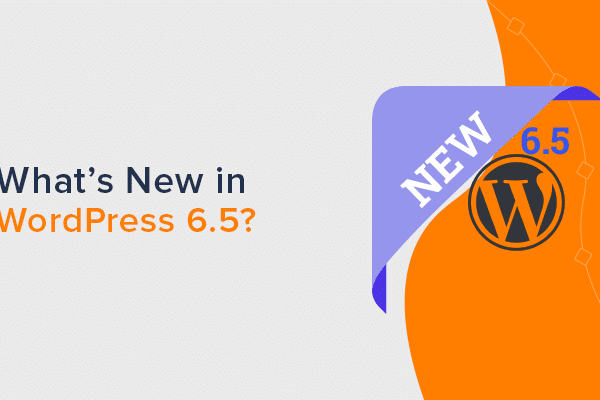Along the way, I’ll share my insights through three typical use cases and give you a summary of how LLMs work in different scenarios: personalized content creation, SEO, and customer support.
Three ways WordPress AI plugins can help with running your site
You likely have to juggle many responsibilities and roles with your site: content writer, marketing expert, PR, designer, web developer, customer service rep…the list goes on. Without the budget, time, or people-power to manage your site, what can you do? This is where LLMs can shine. The three situations I offer here are great ways to use AI/LLMs. What’s more, WordPress plugins can bring them to you without the need for code or technical knowledge.
1. Using AI for personalized content creation
I create content for a living and enjoy it, too. As such, I’m not going to necessarily champion the use of AI as a complete replacement for humans. The tech isn’t there just yet, but (of course) I’m biased.
Instead, my advice is to use AI/LLMs as a way to generate and curate content for small, mundane tasks that are more ‘technical’ yet consume your time. Think of transactional email writing, meta description optimization, and image captioning rather than full-scale articles.
There are a few plugins available that can help regardless, such as AI Bud or AI Power:

For AI Power, I like the options to generate titles, ‘embeddings,’ and even images. Tools such as Comment Replier in AI Power seem less helpful. I’d want to entrust this to a human, although I can see the appeal of using it.
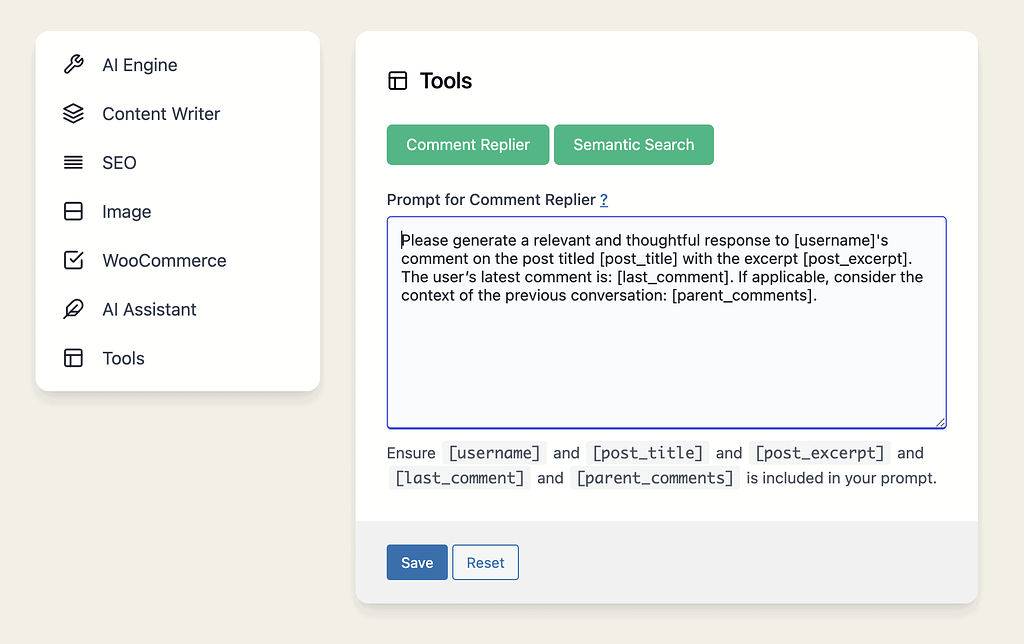
For generating image ‘alt’ text, I tried Alt Text AI a while ago. At the time, the descriptions lacked the accuracy and quality I needed compared to ChatGPT. I’m more impressed with the results of the current WordPress plugin, though, especially its plentiful options:
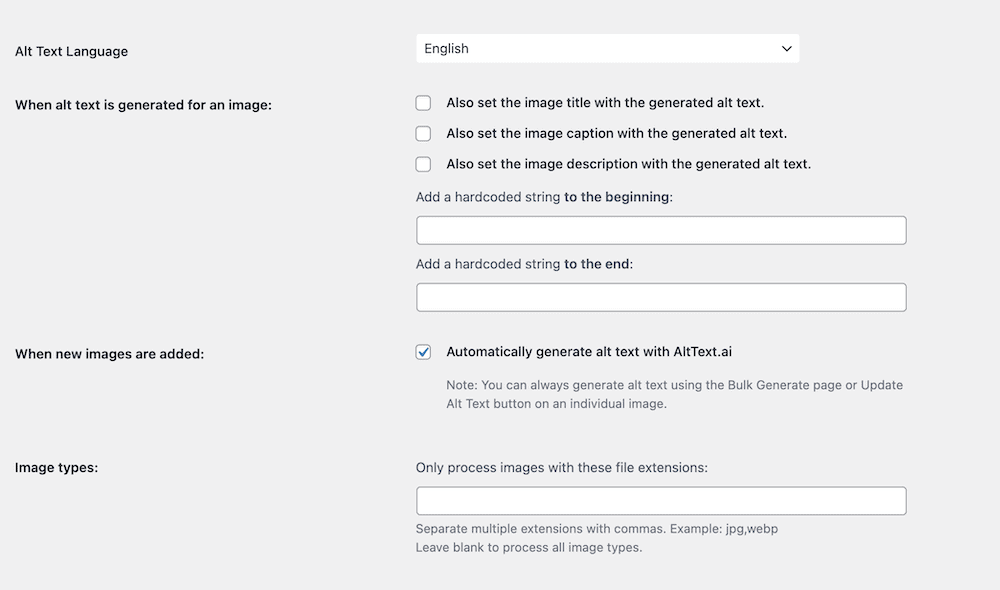
A nice touch is how you can also enter ChatGPT prompts to help underpin the existing functionality, which gives you a little more control refinement and personalization. The Bulk Generate feature is a godsend too:

As many of the plugins here use OpenAI technology, you don’t need any plugin to carry out the tasks on offer. However, many will provide a top-notch workflow and seamless UX inside WordPress.
Choosing LLM models for content creation
ChatGPT-4 used to be the best at creating human-like content. For me, Claude 3 Opus is on another level. Claude 3 Sonnet is good, too, but is closer to ChatGPT-4. As such, if a plugin supports Claude, you’ll receive a better set of results. Though, watch out for rate limits on Claude 3 Opus. This is my biggest issue with the model, although I suspect this is one way to keep the quality of results high.
2. Implementing site analysis in WordPress 📊
Analysis and testing are ideal jobs for AI. For example, I leaned on AI to help me squash some bugs in my code for my post on using HTMX and WordPress. However, LLMs have so much information to access and are unbiased, which suits site analysis. You could get a true reading on how your site is performing, without justifications, fast.
SEO is starting to use AI now, as it can use data-driven insights to take the guesswork out of optimization. Plugins such as All-in-One SEO and SEOPress include AI functionality, for example:
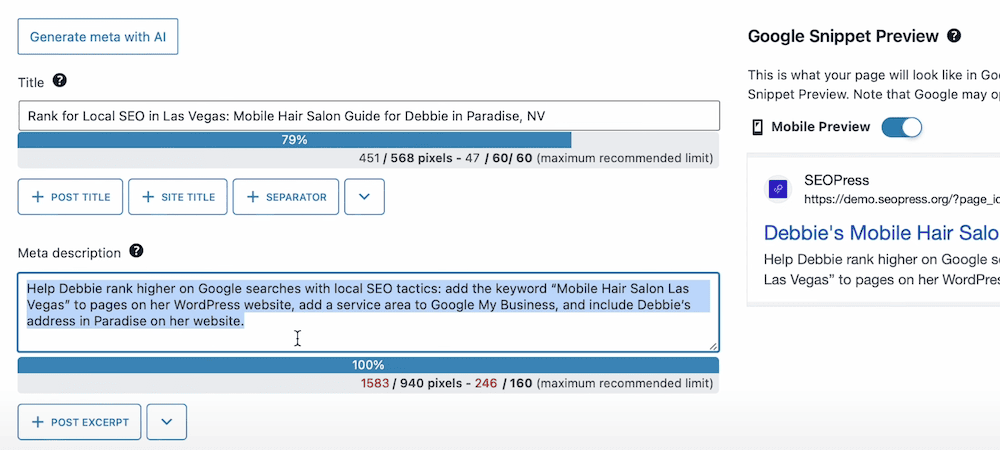
GetGenie interests me too, as it provides competitor analysis as part of its feature set. This plugin conducts keyword research, provides a ranking analysis, and much more. You do this from the Blog Wizard option on the GetGenie → AI Writing screen within WordPress:
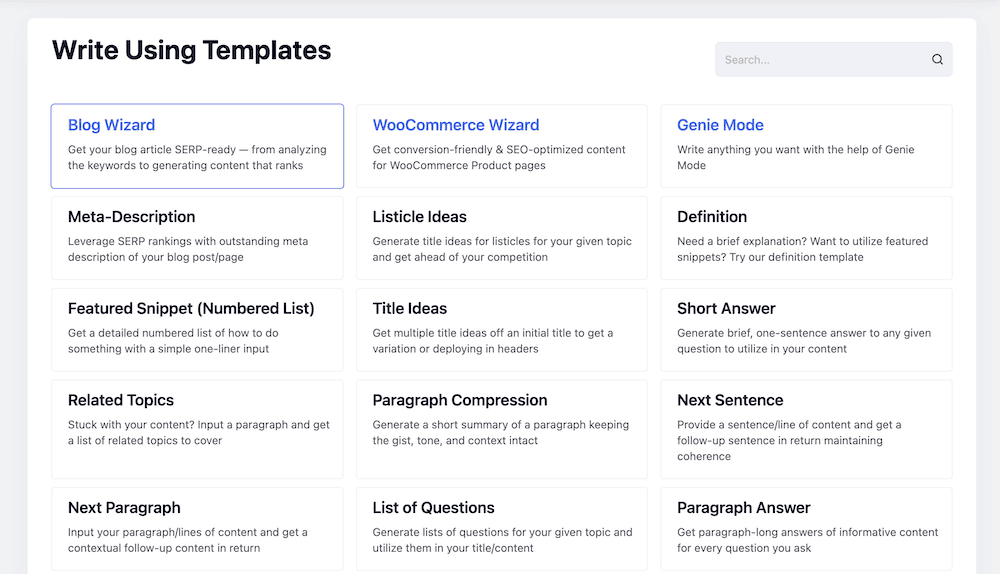
As an aside, I like the wealth of options available within GetGenie. This extends to the Blog Wizard screen. Once you enter a keyword into the sidebar and click the Analyze Keyword button, you get lots of data back:
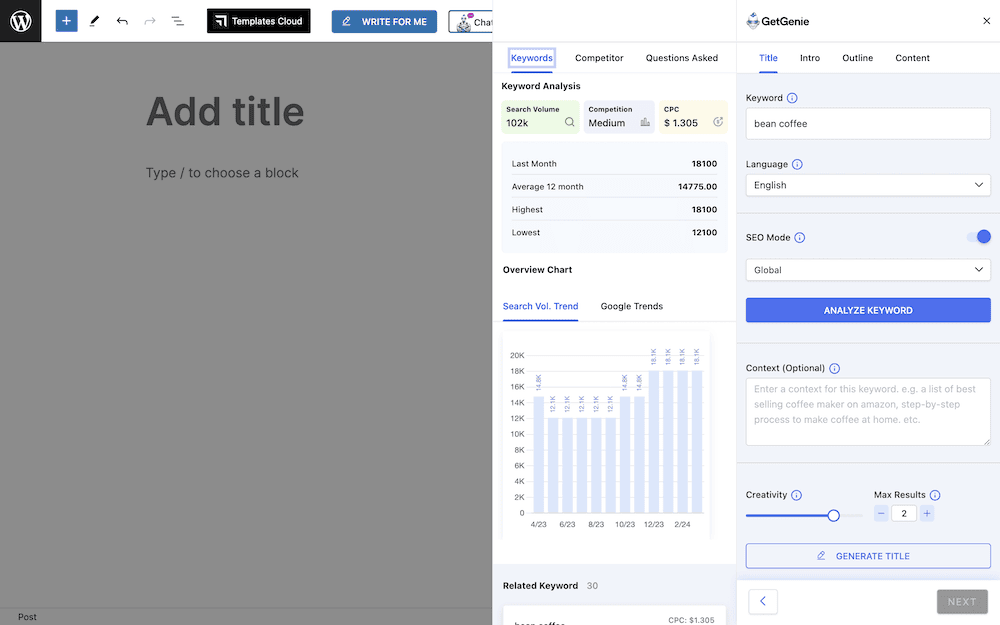
The Competitor tab is also wonderful, as it pulls in data about sites writing similar content based on the keyword. This isn’t strict use of AI, but it’s useful nonetheless.
Choosing LLM models for site analysis
This one is tough because WordPress SEO and analysis is not an area I use LLMs for too much. Instead, I use custom tools to analyze sites created to my own requirements. To troubleshoot those custom tools, Gemini and CoPilot are fantastic. Gemini offers stellar, line-by-line explanations of code, and CoPilot is a tool lots of developers use. If I want to understand a facet of SEO though, Claude is my primary LLM (I’m a premium member).
3. Setting up automated customer service with AI 🤖
Customer inquiries can be stressful, especially if you’re a micro or small business without a dedicated team. Again, AI can help by being an unemotional, unbiased, and helpful assistant that works to resolve queries and redirect customers around the clock. There are some fantastic AI customer service plugins, such as AI Engine:

This plugin sticks out as a top choice when it comes to ChatGPT and WooCommerce, for instance. You also have AI ChatBot, which offers a free version of its plugin.

This uses Google’s Dialogflow as its AI model, which lets you build a conversational user interface (UI). You have to sit and tweak the chatbot to your needs through its plentiful settings. AI ChatBot is less intuitive to me than AI Engine – the latter has a quicker path to creating a chatbot for one thing:
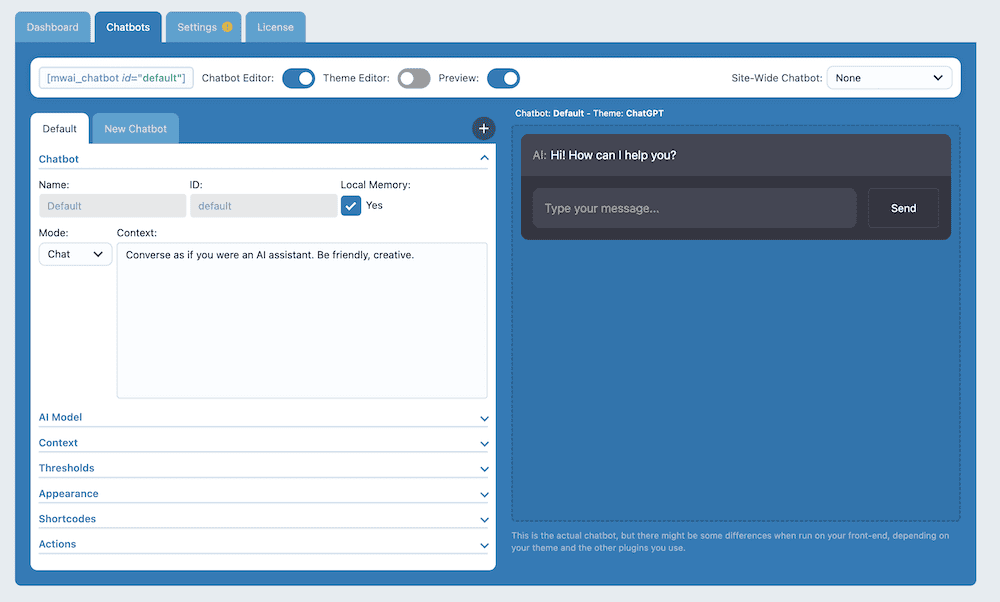
Most of your time here will consist of creating intents and conversation flows, which can be complex and often boring. A UI that looks good, such as AI Engine’s, will be welcome.
Choosing LLM models for customer service
Judging LLMs for customer service is hard without using the plugins and deciding whether you like the output. Based on it being the ‘responsible AI,’ Claude has a theoretical edge, thanks to its stringent monitoring for negative sentiments. This can be a blessing and a curse, although for a front-line customer service bot, I’d need to know it will be conservative in what it delivers. Most solutions use ChatGPT, though. I wouldn’t recommend any other LLMs for this task, based on current benchmarks.
WordPress has become self-aware…
Along with thousands (if not millions) of others, I’m using LLMs and AI to help in areas where an extra pair of hands or eyes are otherwise necessary. This can be as simple as running ideas past an impartial ‘parser,’ passing off technical writing tasks while you focus your attention elsewhere, and more.
I’ve used all the major AI/LLM platforms, and been a premium member of both Claude and ChatGPT, and I’m impressed with what WordPress plugins can achieve. I think you will, too!
If you have an opinion on using AI and WordPress together, I’d love to hear about it in the comments section below!


